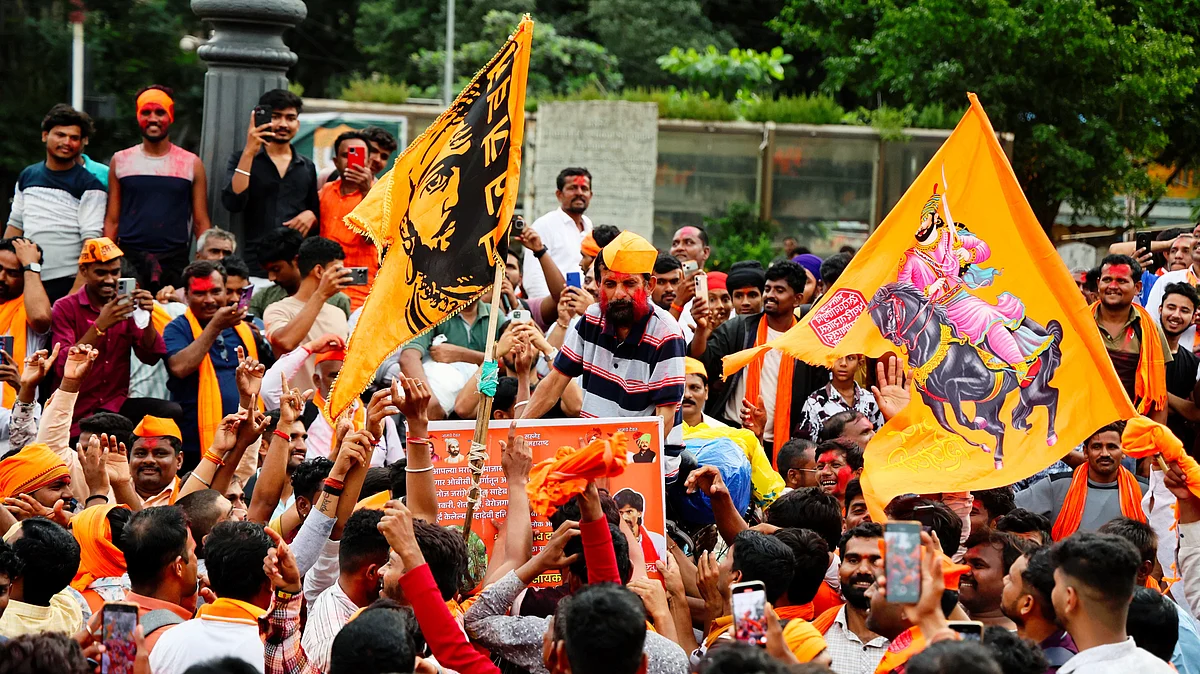Bombay High Court recuses itself from hearing Maratha quota issue
The petitioners argue that granting Kunbi certificates to Marathas would effectively include them in the OBC category

A division bench of the Bombay High Court on 22 September, Monday, recused itself from hearing a set of petitions challenging the Maharashtra government’s decision to issue Kunbi caste certificates to members of the Maratha community for the purpose of availing reservations.
The bench, comprised of justices Revati Mohite Dere and Sandesh Patil, was scheduled to hear five petitions filed by individuals and organisations from the Other Backward Classes (OBCs). These petitioners argue that granting Kunbi certificates to Marathas would effectively include them in the OBC category, potentially impacting existing reservations.
At the hearing, Justice Patil indicated his inability to hear the matter, leading the bench to recuse itself without citing any specific reason.
The petitions will now be placed before a new bench led by Chief Justice Shree Chandrashekhar and Justice Gautam Ankhad for hearing at a later date.
The petitioners include the Kunbi Sena, the Maharashtra Mali Samaj Mahasangh, the Ahir Suvarnkar Samaj Sanstha, the Sadanand Mandalik and the Maharashtra Nabhik Mahamandal. They contend that the government’s move is arbitrary, unconstitutional and legally flawed, and have urged the court to set aside the decision.
In its plea, the Kunbi Sena specifically challenged the government’s resolutions that, it claims, alter the criteria for identifying individuals under the categories of Kunbi, Kunbi Maratha and Maratha Kunbi.
The organisation argued that the resolutions are vague and could lead to administrative confusion as well.
The petition further alleged that the government is attempting to include Marathas under the OBC category through an unclear and indirect mechanism, thereby potentially affecting the rights of existing OBC communities.
The Maharashtra government’s decision followed a five-day hunger strike by quota activist Manoj Jarange Patil at Azad Maidan in Mumbai, starting 29 August. The agitation, which involved road blockades and public demonstrations in south Mumbai, drew sharp criticism from the High Court, which noted that normal life in the city had been severely disrupted.
In response, the state government issued a general resolution (GR) on 2 September, referencing the Hyderabad Gazetteer, and announced the formation of a committee to facilitate the issuance of Kunbi caste certificates to Marathas who can provide historical documentation linking them to the Kunbi caste.
The resolution has sparked concern among OBC communities, particularly after the state’s department of social justice and special assistance issued guidelines on implementing the Hyderabad Gazetteer’s claims. This document from 1918 is oft-cited as the ‘official record’ to support the claims that Marathas from the Hyderabad region, particularly Marathwada, are entitled to reservation under existing policies.
The new guidelines issued would enable Marathas who meet the criteria to apply for Kunbi caste certificates and, by extension, become eligible for OBC reservation benefits.
Follow us on: Facebook, Twitter, Google News, Instagram
Join our official telegram channel (@nationalherald) and stay updated with the latest headlines
